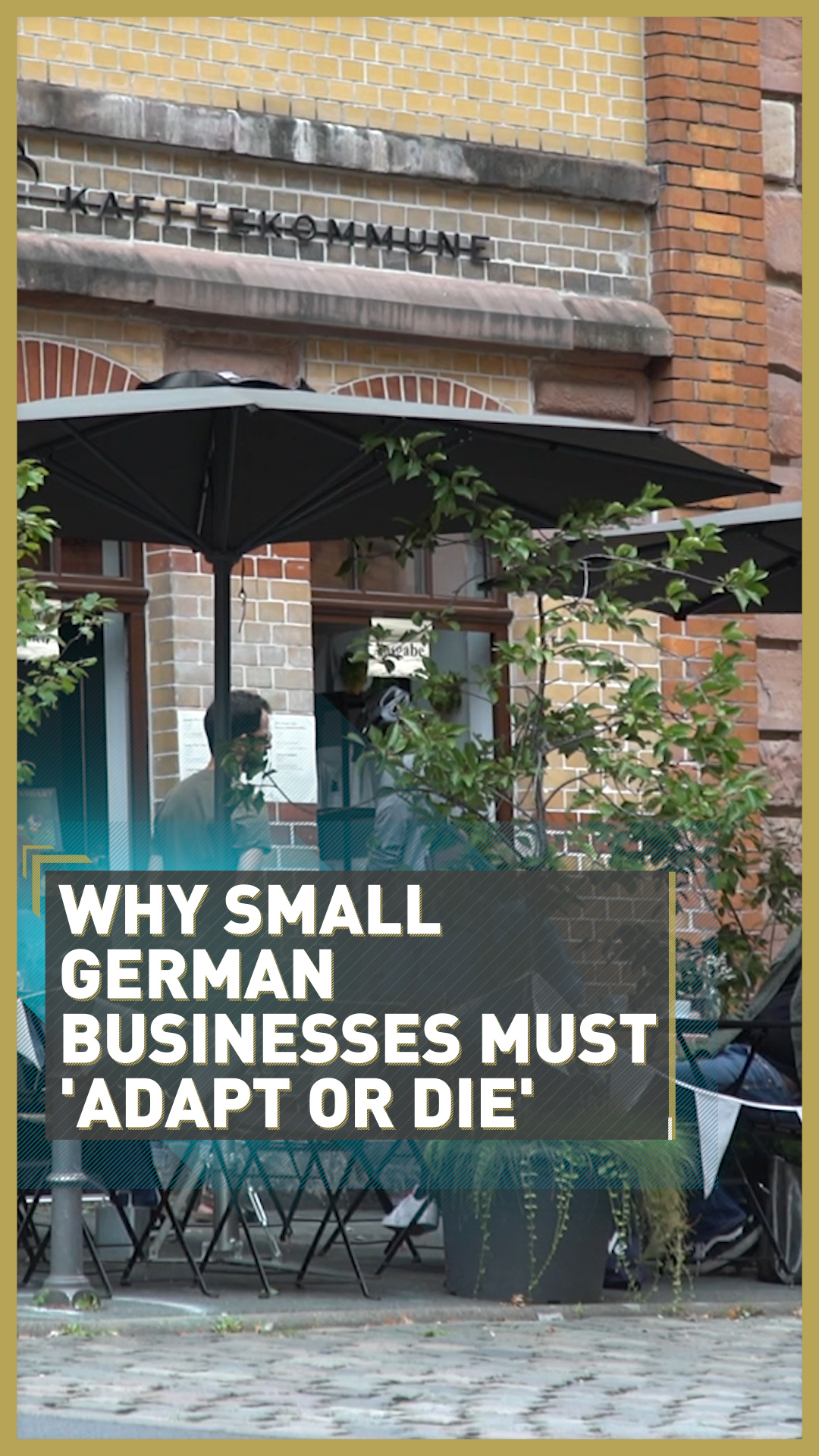02:49

The German economy shrank by a record 9.7 percent in the second quarter as consumer spending, company investments and exports plummeted at the peak of the pandemic. Small businesses have been hit hard, with some forced to radically change their business models.
One of those is Kaffeekommune, an espresso bar in the town of Mainz, near Frankfurt. In a pre-pandemic world, it was a bustling hub in the community with seats for more than 50 customers. Now there's space for just 14.
"It's really hard work," says owner Paul Bonna. "From the middle of February to the end of June, I was constantly working, just to rearrange, to find new ways to create turnover here and to keep my staff, and to empower them to push forward into a shop which is running completely differently."

Coffee shops like Kaffeekommune are having to be inventive with outdoor space or the products they offer. /Isobel Ewing
Coffee shops like Kaffeekommune are having to be inventive with outdoor space or the products they offer. /Isobel Ewing
Bonna kept his staff thanks partly to government wage support. During lockdown he sold coffee beans out of a window and now he has a socially distanced terrace area – the shop itself is too small to allow customers inside safely.
In case you missed it:
· Germany to take on more debt in 2021 due to virus: finance minister
· Rethink on reusable coffee cups as waste surges during the pandemic
· German economy contracts at a record pace, recovery hinges on consumers
He says the pandemic has "completely changed the game," and altered the way he is able to deliver a service to customers.
"We still are making high-quality products, but the experience in our shop was always more than that," Bonna says. "It's also an experience of ambiance – how it feels to be in the shop, the lighting, the fancy machines, the menu always fresh and prepared, and also the service."
Typically, a third of Bonna's turnover comes from selling espresso machines and training baristas – that's now completely gone. So, too, is the catering side of his business. These are the casualties of a pandemic that has caused consumer spending in Germany to shrink by 11 percent between April and June.
The economic slump of the last quarter was worse than during the 2008 Global Financial Crisis. And it was the sharpest decline since Germany began to record quarterly GDP calculations in 1970.
Bonna managed to keep his business afloat by selling coffee beans online, thanks to a large and loyal customer base. He says a willingness to adapt is the only way for businesses to survive.
"The businesses that are strong try to reinvent themselves, they will go out stronger from the crisis, the ones that can't will die," he says. But ahead are fresh challenges – the outdoor seating isn't an option in the winter months.
Bonna believes countless German businesses will fail in the coming months, but he's determined that his own will not be among them.